Palma de Mallorca, the capital of the Balearic Islands, is a top destination for travelers seeking stunning sights in Spain. There are many attractions and things to see in Palma, including the magnificent Palma Cathedral, the historic Bellver Castle, and the beautiful Almudaina Palace. As you explore Palma, you’ll also discover bustling markets like Mercat de l’Olivar and scenic coastal views along Bahía de Palma.
The local cuisine features fresh seafood and traditional Mallorcan dishes, highlighting the city’s culinary culture. Art galleries such as Es Baluard and cultural events add to the city’s appeal. Palma de Mallorca offers many experiences, making it a perfect spot for history buffs and beach lovers.
Top Attractions and Things to see in Palma de Mallorca
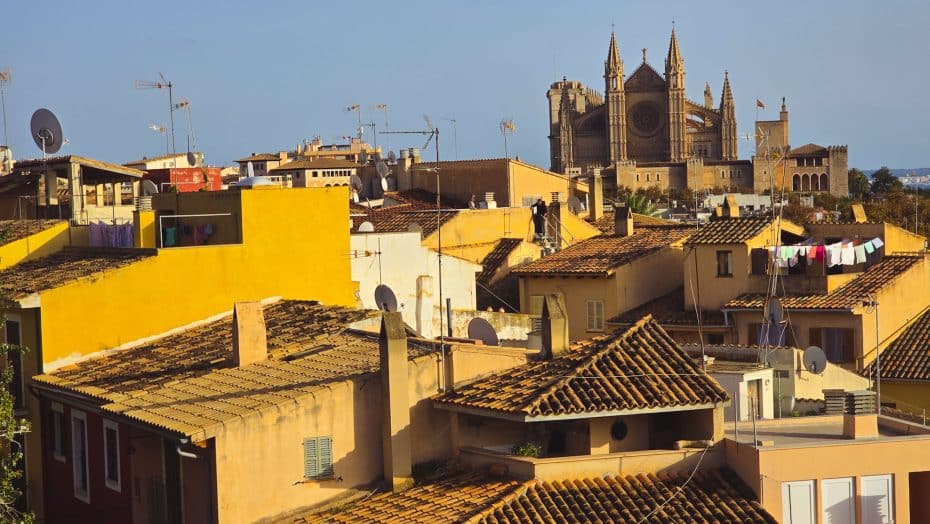
Palma de Mallorca is a city filled with historic landmarks and cultural sites. The city’s rich history and vibrant atmosphere make it a must-visit destination. Explore ancient architecture, museums, and beautiful coastal views. These are some of the top attractions in Palma:
Historic & Cultural Attractions in Palma de Mallorca
1. Palma Cathedral (La Seu)
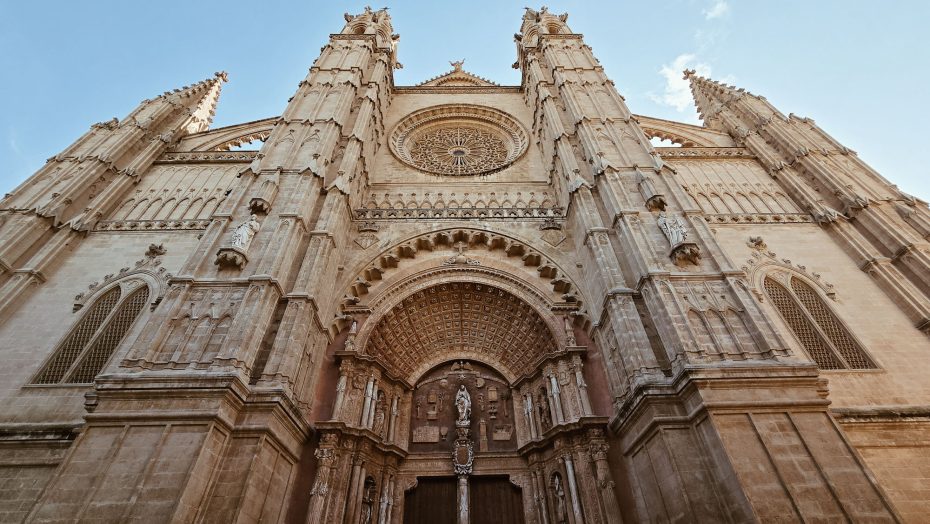
Palma Cathedral, also known as La Seu, is an important attraction in Palma. This Gothic structure, located near the Bay of Palma, began construction in 1229 after King James I of Aragon reconquered the island. Originally a mosque, the cathedral was consecrated in 1230, with construction continuing until 1601.
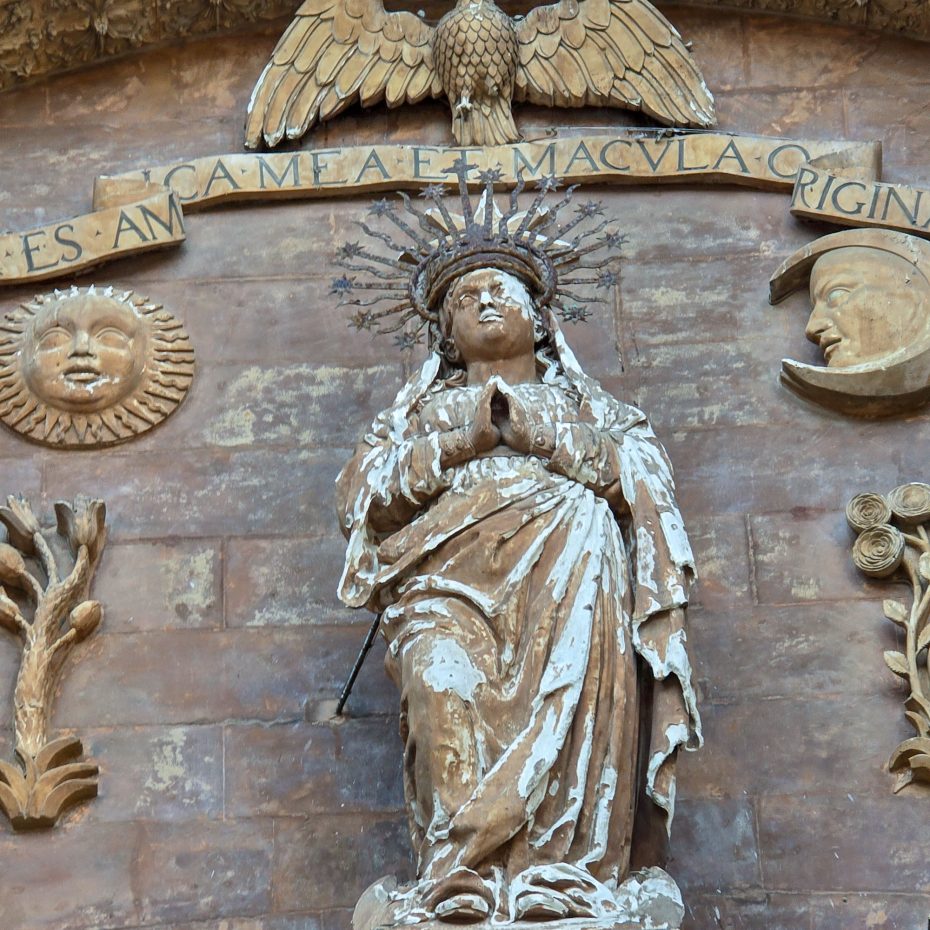
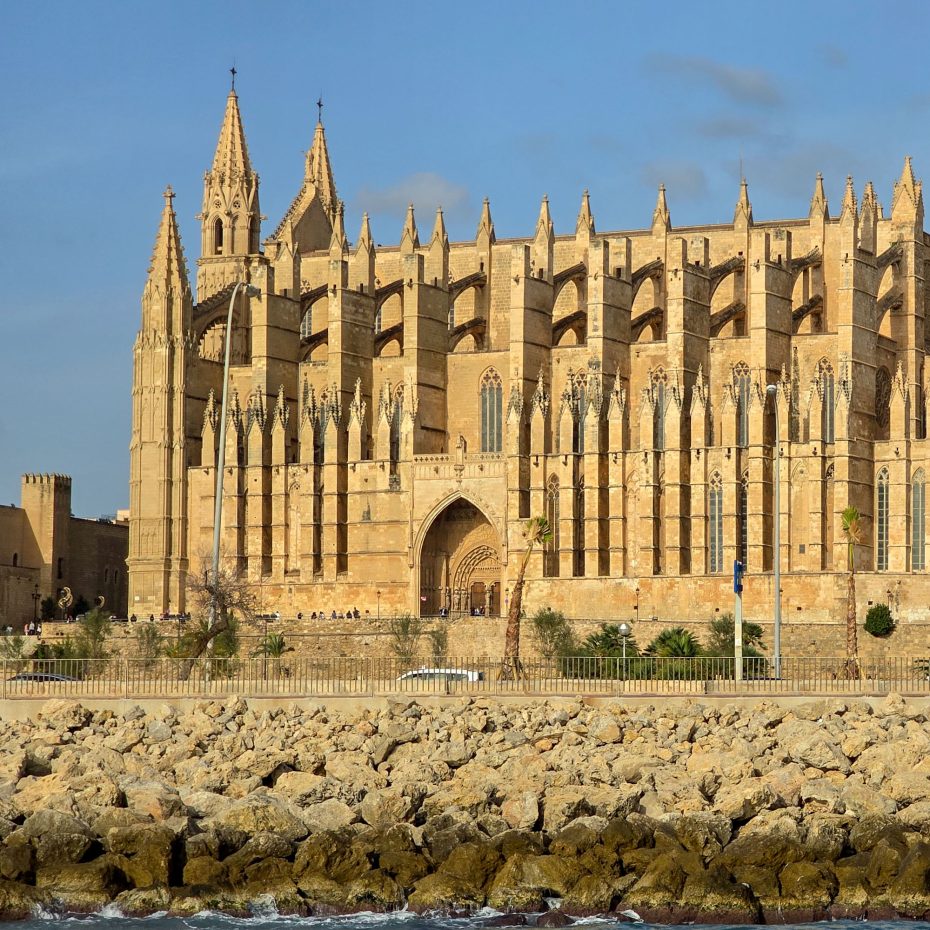
In the mid-19th century, the cathedral underwent renovations to address structural issues. One such change was adding a gable with pinnacles to the west facade, which enhanced the cathedral’s stability and aesthetic appeal. Inside the cathedral, the famous rose window displays vibrant colors. The interior also features works by Antoni Gaudí and Miquel Barceló. The cathedral’s design blends Gothic and Levantine Gothic styles with soaring columns and a high nave, one of the tallest in Europe at 44 meters (144 ft).
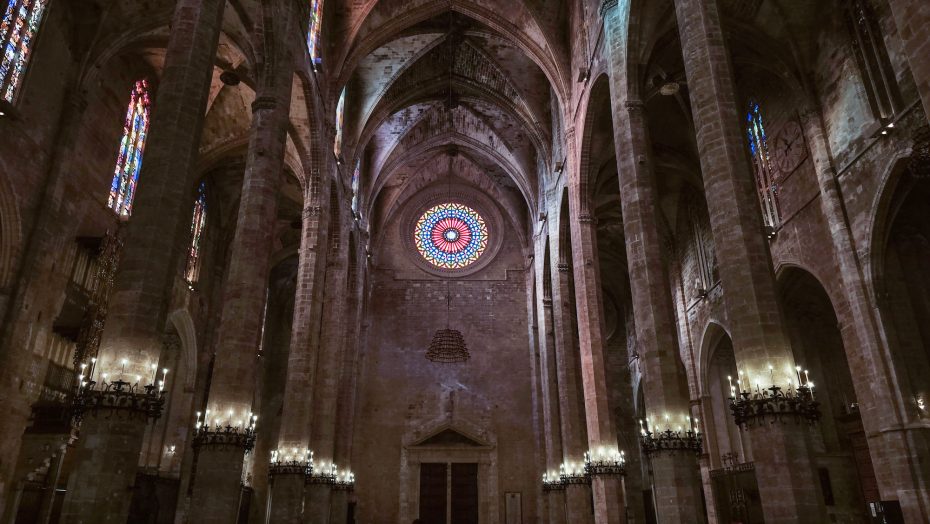
Inside La Seu Cathedral in Palma de Mallorca, you are greeted by soaring Gothic arches, stunning stained glass windows, and a breathtaking rose window that bathes the interior in colorful light. The high ceilings and intricate stonework create a sense of grandeur and reverence. The cathedral houses a collection of religious art and several chapels, each with its own unique design and artwork, including the famous Chapel of the Holy Trinity, decorated by the renowned artist Miquel Barceló. The play of light and shadow throughout the day adds to the awe-inspiring atmosphere.
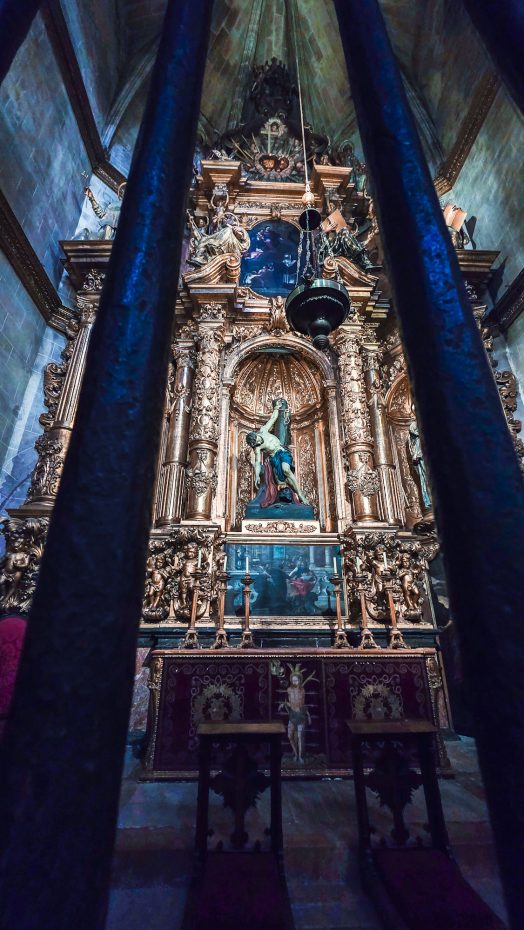
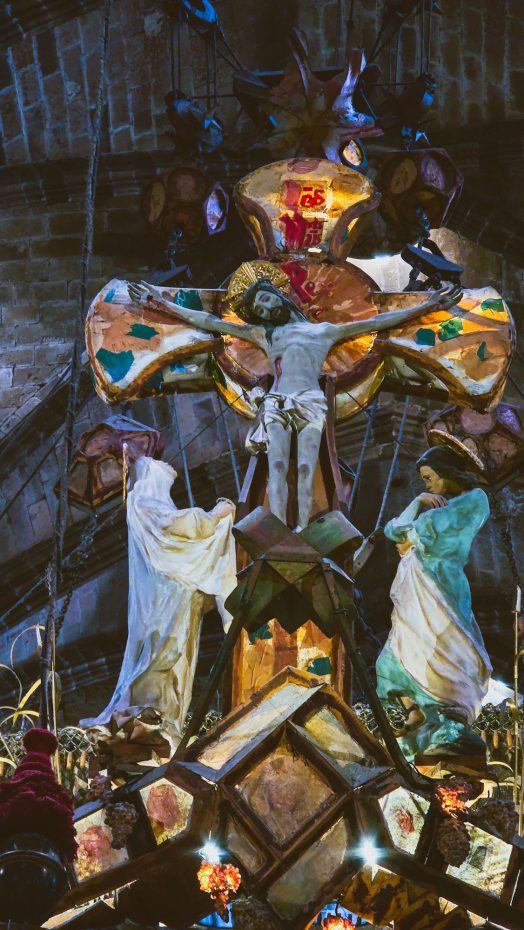
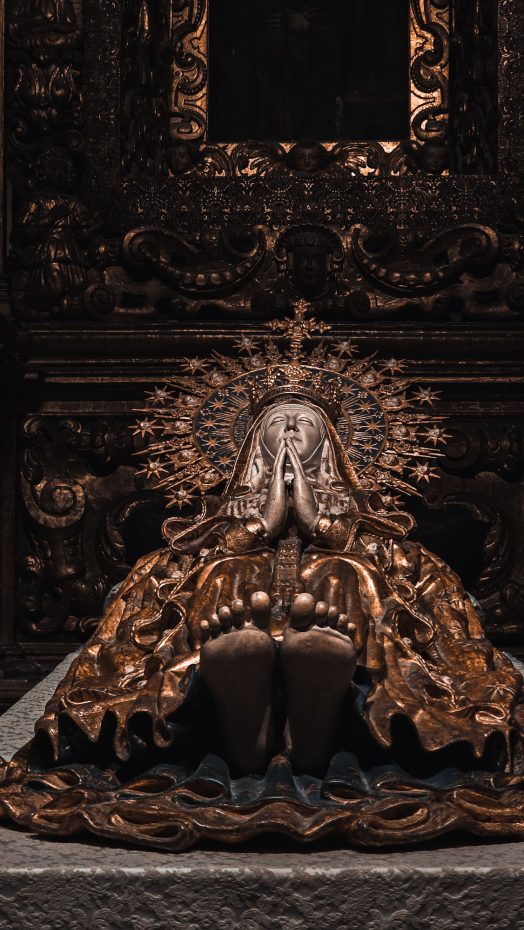
Palma Cathedral is located at La Seu Square, Palma de Mallorca, Balearic Islands, 07001. It is open daily from 9:00 AM to 6:00 PM (April to October) and 10:00 AM to 5:00 PM (November to March). Entry costs around €10 for adults, €8 for students, and €6 for children. The cathedral is accessible by public transport, and underground parking is available in front.
2. Almudaina Palace
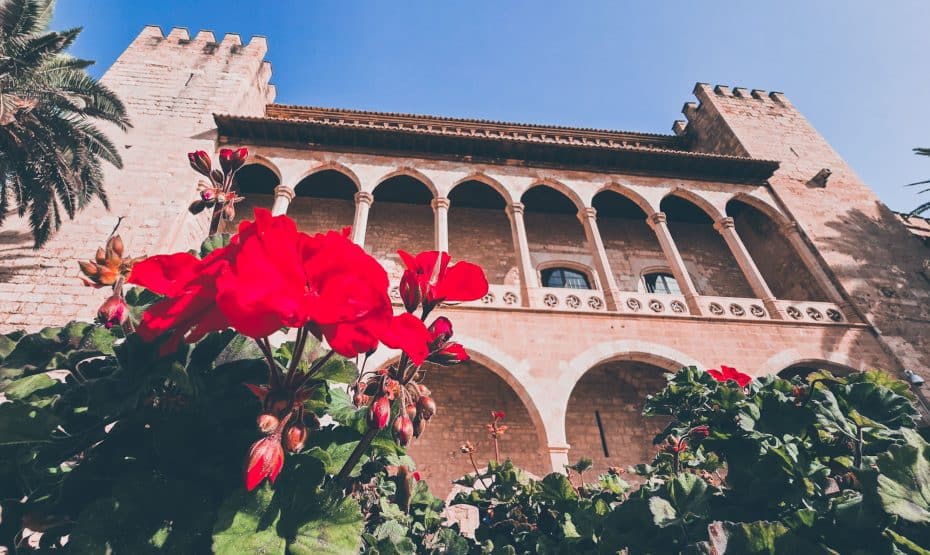
Almudaina Palace, also known as the Royal Palace of La Almudaina, is a significant attraction in Palma. Built in the early 14th century for King James II of Majorca, it has served as the official residence of the Spanish royal family during their visits to the island. This palace is a blend of Gothic and Renaissance architectural styles, making it one of the top attractions in Palma.
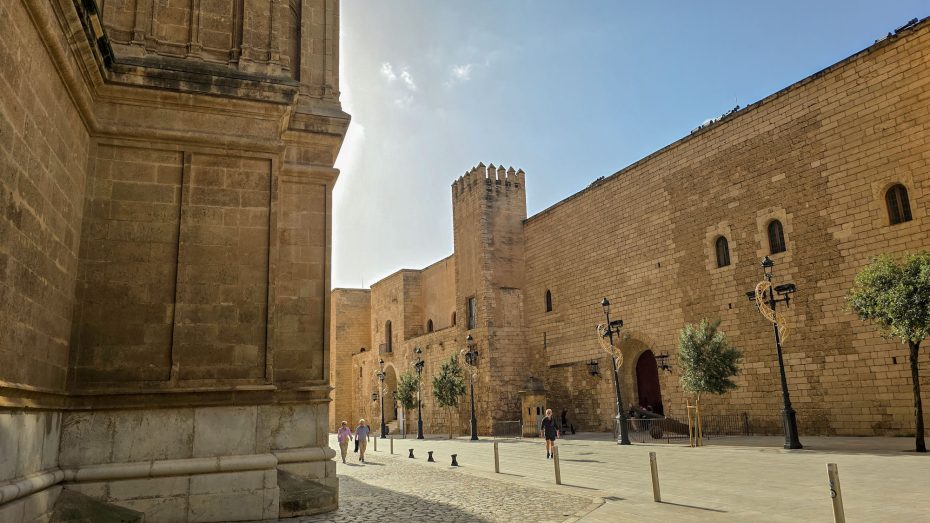
Inside, the palace features a rich collection of tapestries, paintings, and artifacts. Highlights include the Throne Room, Courtyard of Honor, and the Royal Chapel. These features showcase the palace’s historical and cultural significance, making it a standout among Palma attractions.
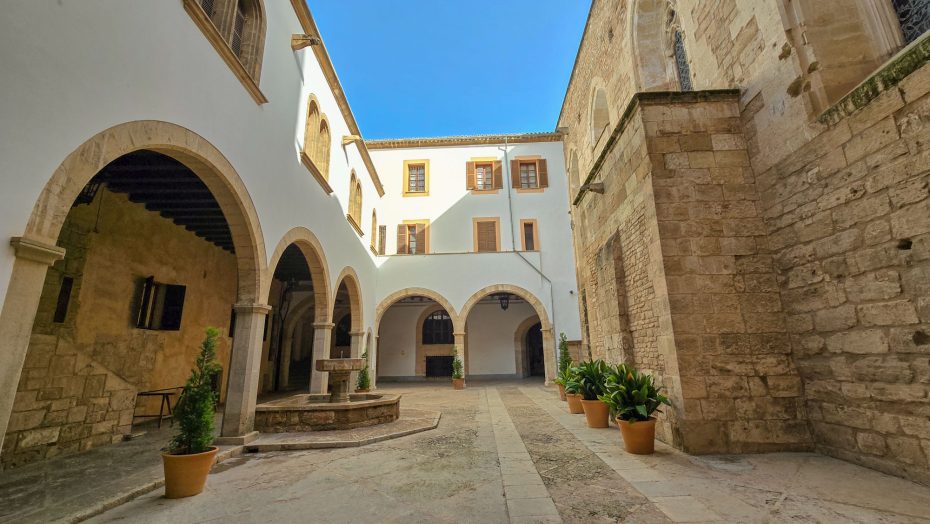
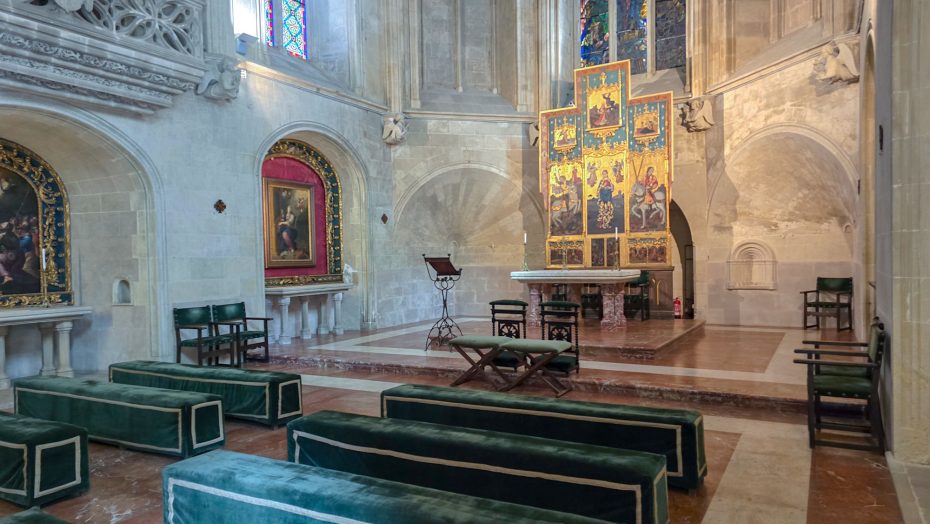
Almudaina Palace is located at Calle Palau Reial, 07001 Palma, Balearic Islands. It is open to the public from Tuesday to Sunday, with varying hours by season. In summer, it is open from 10:00 AM to 8:00 PM, and in winter, from 10:00 AM to 6:00 PM. The entry fee is approximately €9 for adults, with discounts for students and children.
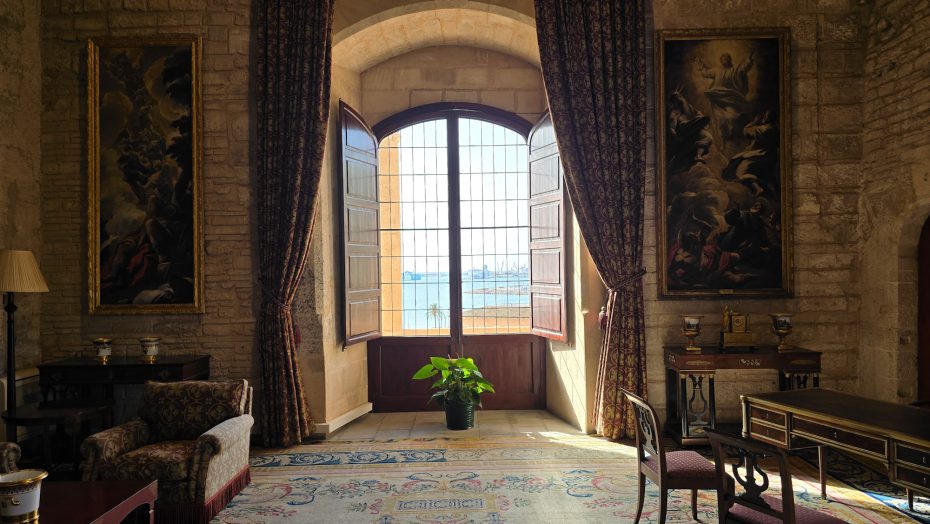
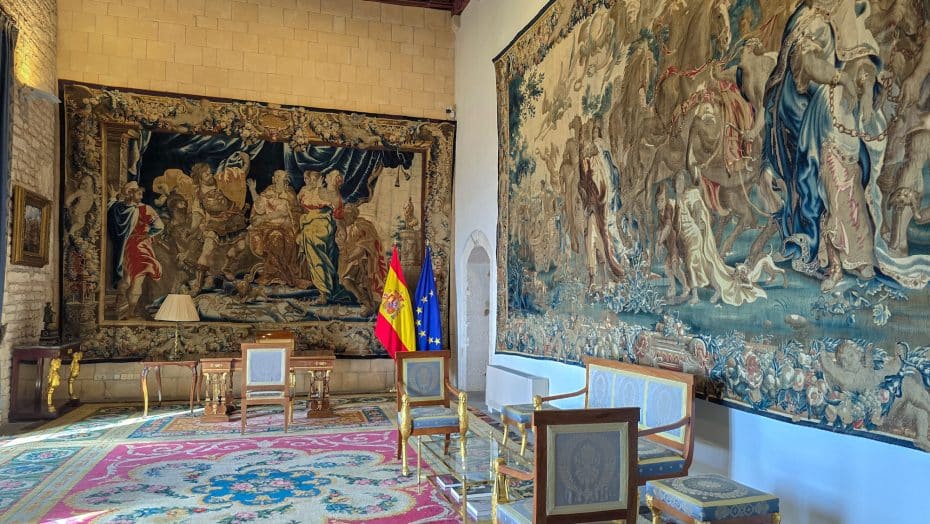
The palace is accessible by EMT bus lines 1, 3, and 15, which stop at Plaça de la Reina, just a 3-minute walk from the palace. The Palma Intermodal Station also offers train and metro services, connecting various parts of the island, and is about a 15-minute walk away. Parking is available nearby.
3. Es Baluard Museum of Modern and Contemporary Art
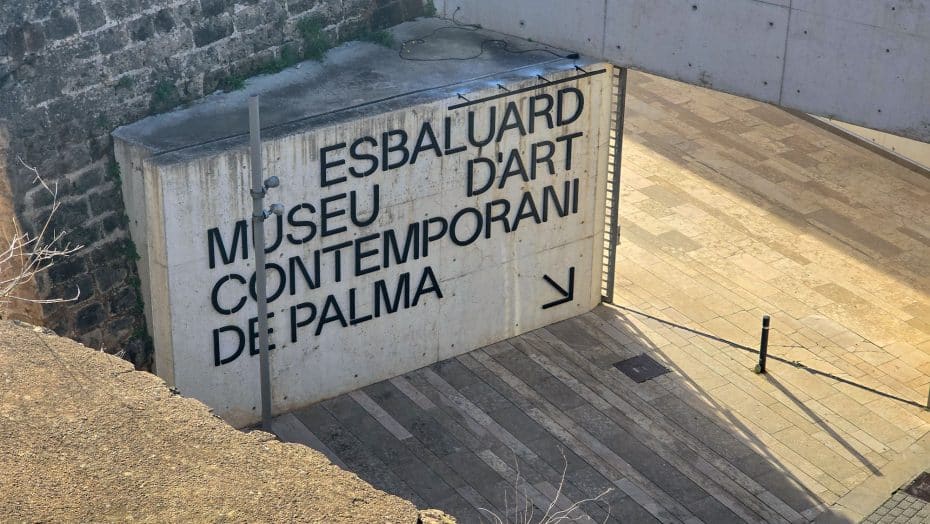
Es Baluard Museum of Modern and Contemporary Art, located in Palma, is a cultural institution that showcases contemporary art. Opened in 2004, the museum houses over 800 works by artists from the Balearic Islands and internationally. It is situated at Plaça de la Porta de Santa Catalina 10
The museum features a modern and contemporary art collection, with rotating exhibitions exploring various themes and artistic practices. Works by artists like Carlos Garaicoa and Lluís Vecina Rufiandis are included. The museum also offers educational programs, guided tours, and public events.
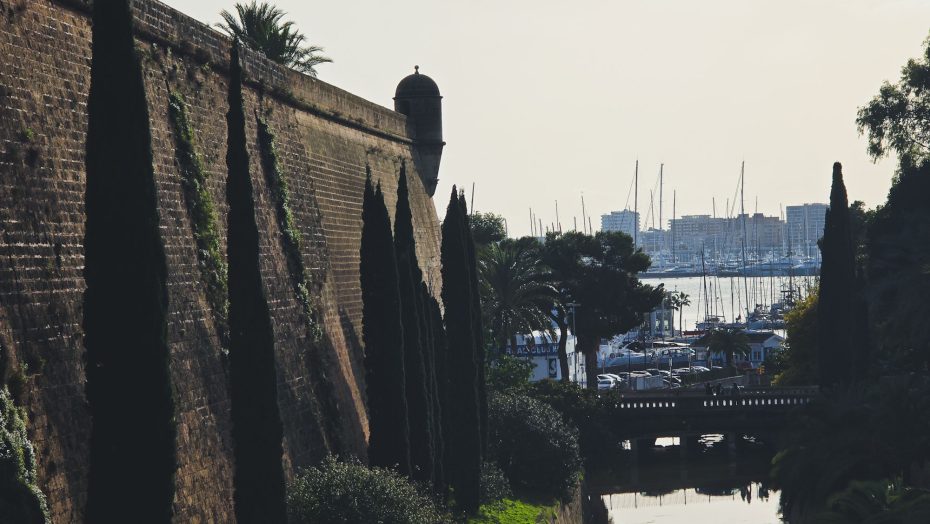
Es Baluard Museum is open from Tuesday to Sunday, from 10:00 AM to 8:00 PM in summer and 10:00 AM to 6:00 PM in winter. The entry fee is approximately €6 for adults, with discounts for students, children, and other groups. The museum is accessible by EMT bus lines 1, 3, and 15, stopping at Plaça de la Reina, about a 5-minute walk from the museum.
4. Bellver Castle
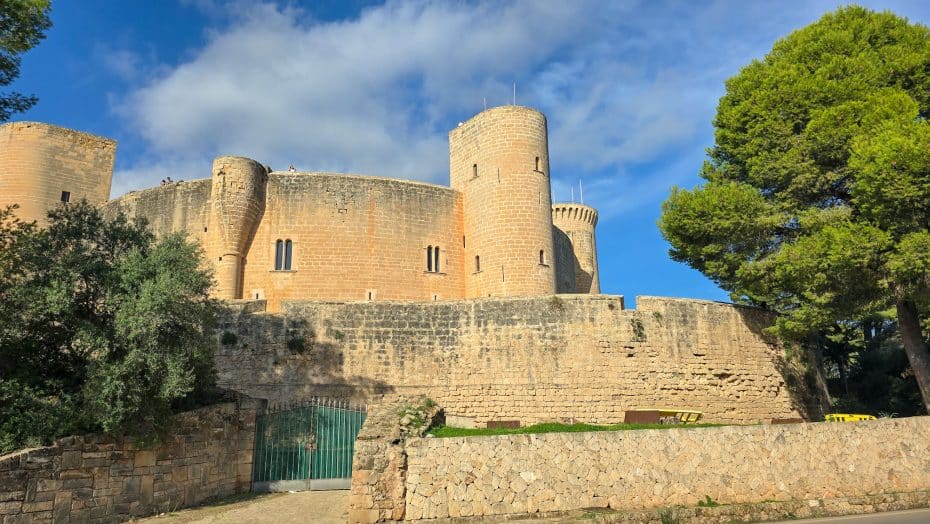
Bellver Castle, located around 3 km (1.86 mi) west of Palma’s center, is a unique Gothic-style structure known for its circular design. Built between 1300 and 1311 for King James II of Majorca, it stands out among Palma attractions due to its historical significance and unique architecture.
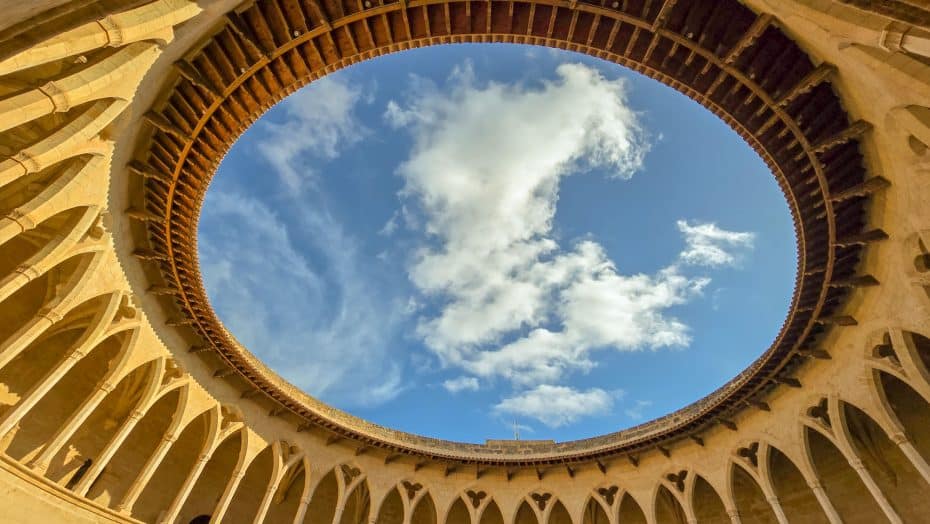
The castle’s strategic location provided a defensive advantage, overseeing the Bay of Palma and the surrounding area. During the War of Spanish Succession (1701-1714) and the War of the Spanish Independence (1808-1814), Bellver Castle served as a military prison. One of its notable prisoners was the statesman and philosopher Gaspar Melchor de Jovellanos.
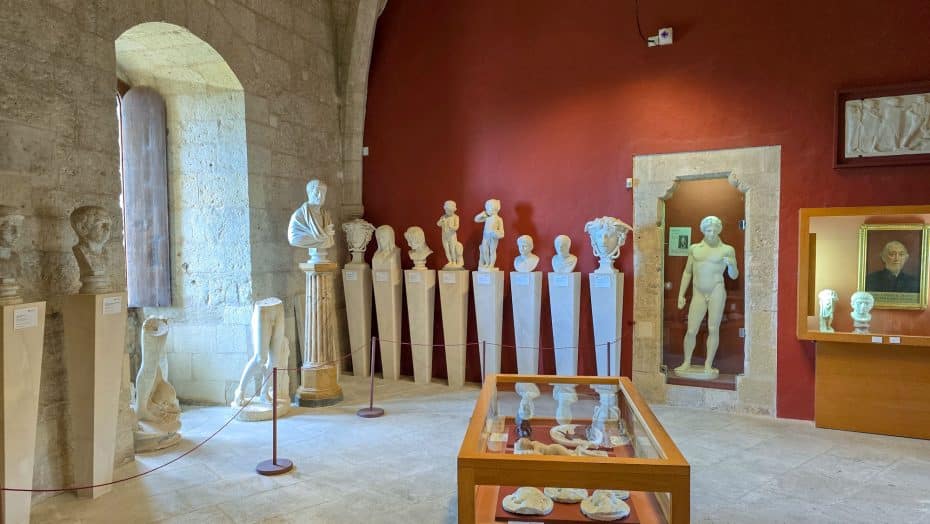
Bellver Castle is located at Carrer Camilo Jose Cela s/n, Palma de Mallorca, 07014. It is open to the public from Tuesday to Saturday, 10:00 AM to 7:00 PM (April to September) and 10:00 AM to 6:00 PM (October to March). It is open from 10:00 AM to 3:00 PM on Sundays and bank holidays. The entry fee is approximately €4 for adults and €2 for students and pensioners. Free admission is available on Sundays and for children under 14.
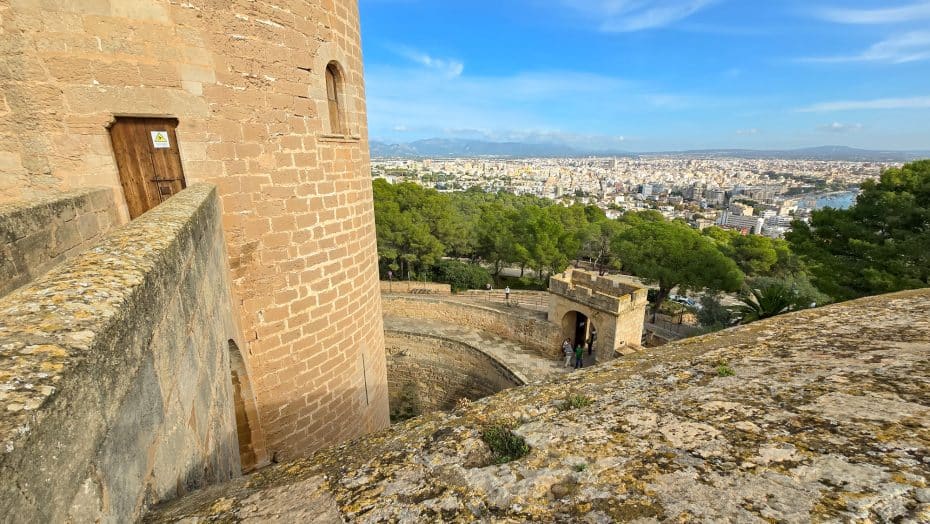
EMT bus lines 3 and 46 stop nearby, making the site accessible. Parking is available at the entrance.
5. Museu Fundació Juan March
The Museu Fundació Juan March is a cultural center in Palma’s historic center. Housed in a 17th-century mansion renovated by architect Guillem Reynés i Font, the museum features a permanent collection of 20th-century Spanish art, making it a notable stop among Palma attractions. The collection is periodically reorganized to accommodate temporary exhibitions.
The museum offers a variety of cultural activities, including exhibitions, concerts, and conferences. It serves as a hub for art enthusiasts and provides educational programs for teachers and students from the Balearic Islands.
The Museu Fundació Juan March is located at Carrer de la Universitat, 29, Palma de Mallorca, 07001. It is open to the public from Tuesday to Saturday, 10:00 AM to 7:00 PM, and on Sundays and public holidays from 10:00 AM to 3:00 PM. The entry fee is approximately €4 for adults and €2 for students and pensioners.
6. Banys Àrabs (Arab Baths)
The Banys Àrabs, also known as the Arab Baths, are one of the most emblematic monuments in Palma de Mallorca. Located in Can Fontirroig’s gardens in the city’s historic center, these 11th-century baths are a well-preserved example of Islamic architecture on the island. With its impressive dome and skylights, the central room was intended for hot baths. The bath’s unique double floor allowed hot water and steam to circulate.
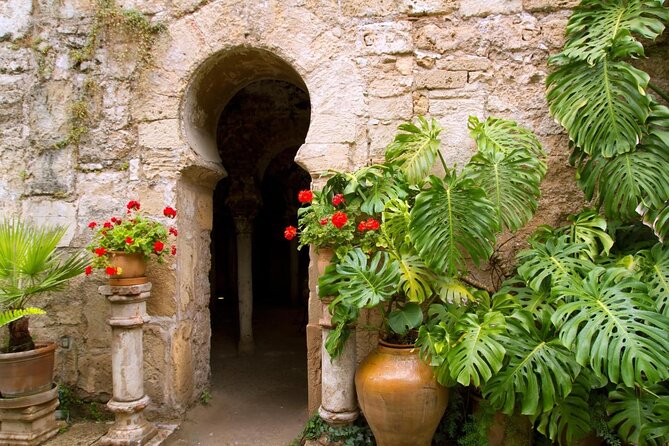
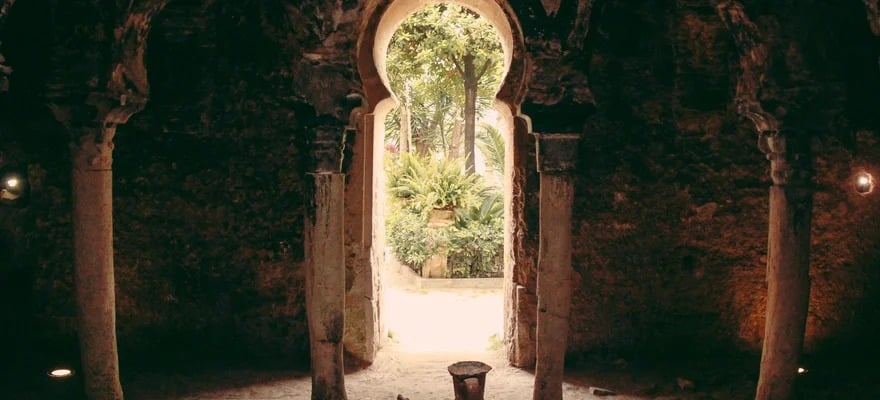
The entrance to the Banys Àrabs is through a horseshoe arch, leading to a central hall with a square floor plan, surrounded by 12 columns with horseshoe arches. The diversity of styles in the column capitals is due to materials from other buildings in the area.
The Banys Àrabs are located at Carrer de Can Serra, 7, Palma de Mallorca, 07001. They are open to the public from April to November, 9:30 AM to 8:00 PM, and from December to March, 9:30 AM to 7:00 PM. The entry fee is approximately €2.
7. Miró Foundation
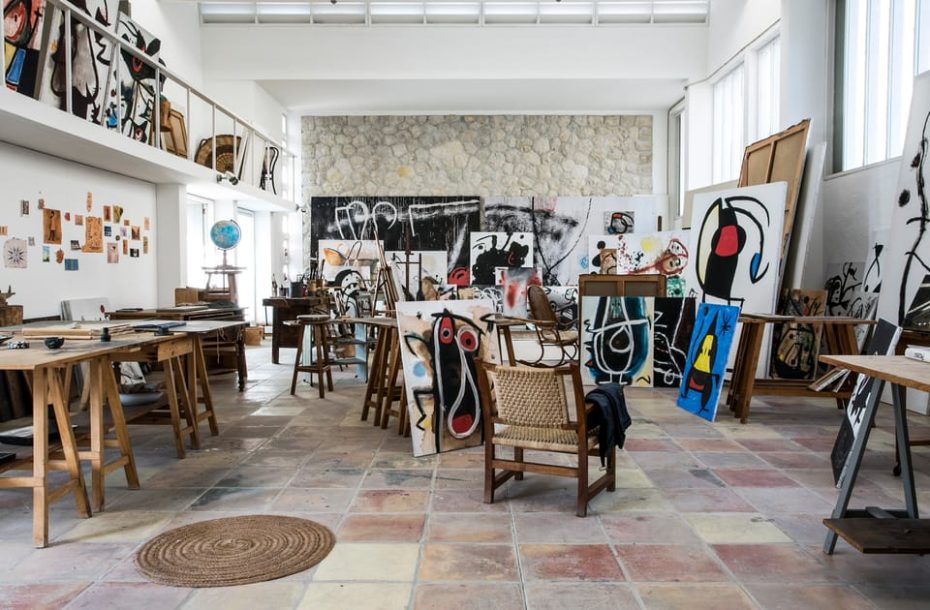
The Fundació Pilar i Joan Miró in Mallorca is dedicated to the life and works of the renowned Spanish artist Joan Miró. Located in Palma, the foundation displays not only an extensive collection of Miró’s paintings, sculptures, and drawings but also his studios, where he created much of his later work.
The foundation is set in a modern building designed by Rafael Moneo that harmonizes with the natural landscape. Visitors can explore the permanent collection, which includes a vast array of Miró’s art and temporary exhibitions by contemporary artists. The studios offer a fascinating glimpse into Miró’s creative process, showcasing his tools, materials, and unfinished works.
In addition to the art, the foundation’s gardens feature a variety of native plants and sculptures, providing a tranquil setting for reflection and inspiration.
8. Passeig des Born
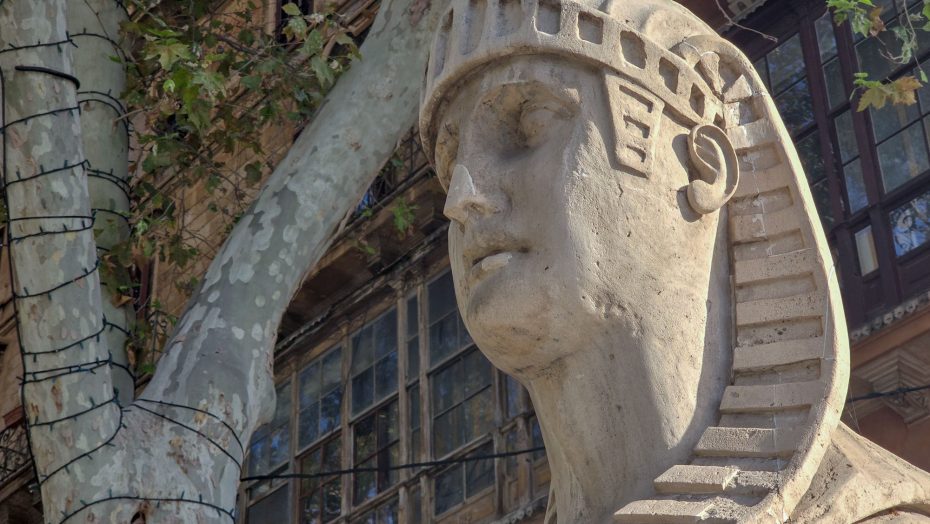
Passeig des Born is one of Palma’s most elegant and bustling boulevards, known for its grand architecture and vibrant atmosphere. This tree-lined avenue stretches from Plaza Juan Carlos I to the waterfront, making it a central hub in the city.
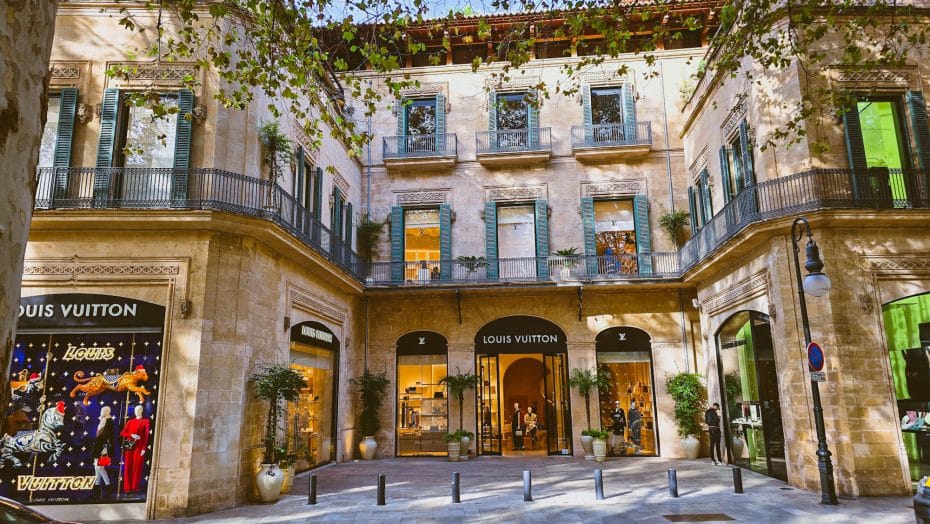
The boulevard is home to high-end shops, including well-known brands and luxury boutiques, making it a top destination for shopping enthusiasts. Additionally, numerous cafes and restaurants line the street, offering a perfect spot to relax and people-watch while enjoying a meal or a coffee.
At the heart of Passeig des Born stands the iconic fountain, a popular meeting point for locals and visitors alike. The area is also known for its cultural events and street performances, adding to the lively ambiance.
Passeig des Born’s proximity to other major attractions, such as La Seu Cathedral and the Royal Palace of La Almudaina, makes it an ideal starting point for exploring the city. Its combination of shopping, dining, and cultural experiences makes it one of the most dynamic areas in Palma.
9. Sa Llotja
Sa Llotja, the Lonja de Palma, is a stunning example of Gothic architecture in Palma de Mallorca. Built between 1426 and 1452 by the architect Guillem Sagrera, it was originally designed as a trading exchange for the city’s merchants. The building features impressive sandstone construction, with a rectangular hall and octagonal towers at each corner.
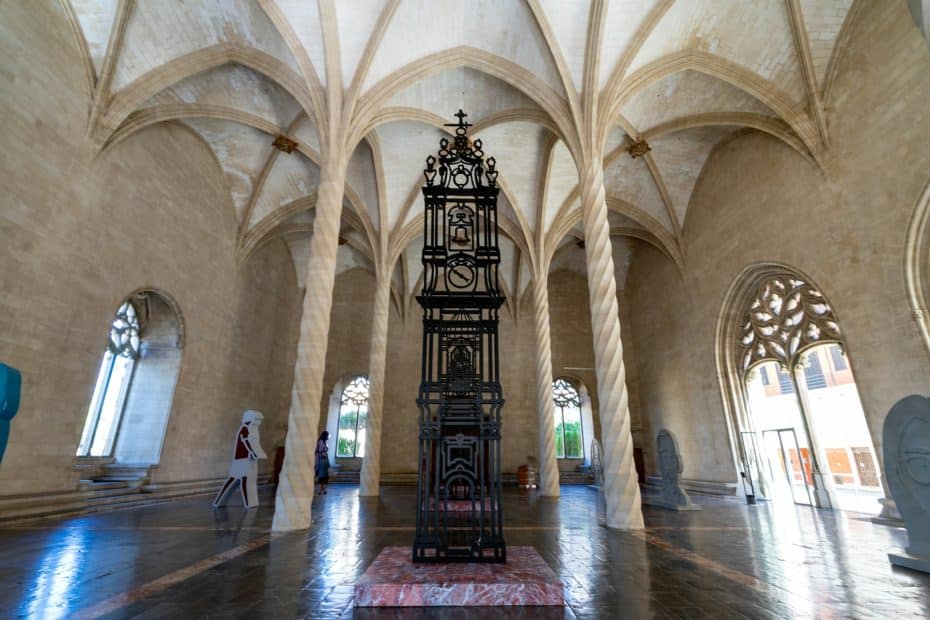
Over the centuries, Sa Llotja has served various purposes, including as a storehouse for goods and guns during the War of Independence and later as a fine art gallery. Today, it functions as a cultural center hosting temporary exhibitions.
Sa Llotja is located at Plaça de la Llotja, Palma de Mallorca, 07012. It is open to the public during exhibitions, typically from 10:00 AM to 8:00 PM. The entry fee varies depending on the exhibition.
10. Casa Museu J. Torrents Lladó
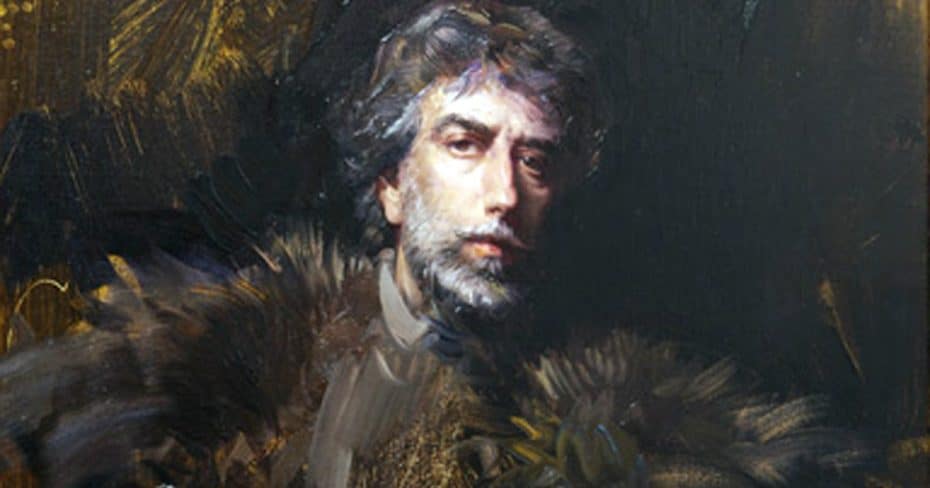
Casa Museu J. Torrents Lladó is dedicated to the Catalan painter Joaquín Torrents Lladó (1946-1993), who moved to Mallorca in 1968 and lived in this house in Palma’s old town until his premature death. The museum showcases his works, including oils, drawings, posters, watercolors, and sculptures. This museum, one of the top cultural attractions in Palma, offers a comprehensive look at the artist’s life and career.
Joaquín Torrents Lladó was known for his portraits, landscapes, and still life paintings. His works reflect a deep connection with the Mediterranean light and colors. Visitors can also explore his personal belongings, studio space, and various memorabilia that offer insights into his creative process.
This museum, one of the top cultural attractions in Palma, is located at Carrer de la Portella, 9, 3rd floor, Palma de Mallorca, 07001. It is open to the public from Tuesday to Saturday, 10:30 AM to 2:30 PM. The entry fee is approximately €4 for adults and €2.50 for children and pensioners.
11. Museu Històric Militar de Sant Carles
The Museu Històric Militar de Sant Carles, also known as the San Carlos Military Museum, is located in Palma de Mallorca. The museum is housed in a historic fortification built in the early 17th century to protect the port of Palma from pirate attacks. The fortification was later expanded and now features a star-shaped design with four large bastions.
The museum showcases a wide range of military artifacts, including weapons, uniforms, and equipment used by the Spanish military over the centuries. It also features exhibits on the history of the fortification itself and its role in defending the island.
The Museu Històric Militar de Sant Carles is located at Carretera Dic de l’Oest, s/n, Ponent, 07015 Palma de Mallorca. It is open to the public from Tuesday to Sunday, 10:00 AM to 2:00 PM, and closed on Mondays and public holidays. Admission is free.
12. Poble Espanyol de Mallorca
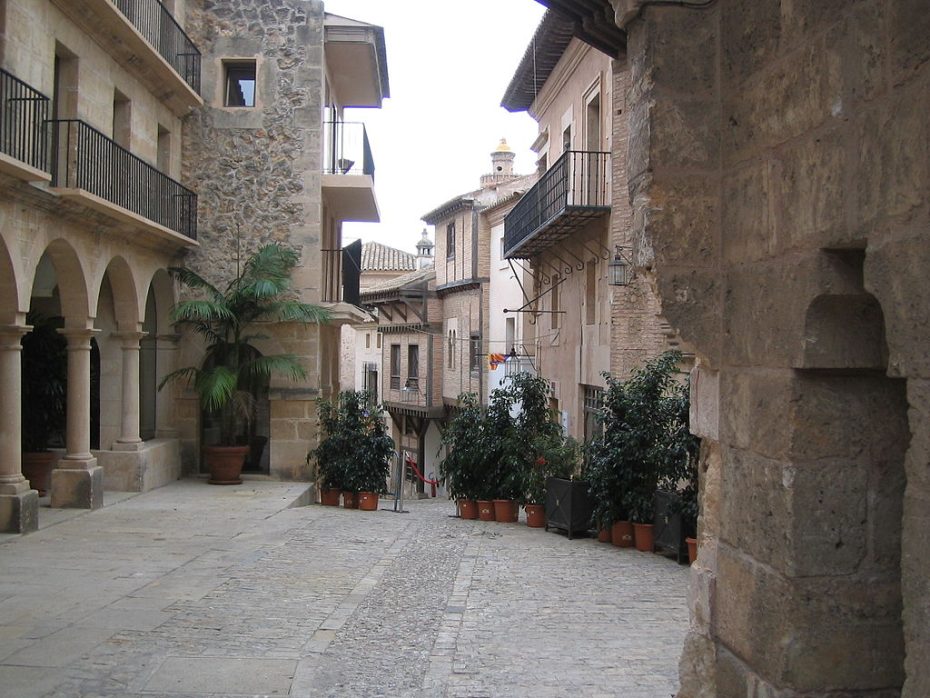
Poble Espanyol de Mallorca, also known as the Spanish Village, is an open-air museum in Palma de Mallorca. It was created in 1967 to showcase the diverse architectural styles and cultural heritage of Spain. Not unlike Barcelona’s Poble Espanyol, the village features reproductions of buildings from many regions of Spain, including Cordoba, Toledo, Madrid, and other typical Spanish houses.
Visitors can explore the charming streets, squares, and buildings, all built to scale and constructed with traditional materials from their respective regions. The village also hosts art exhibitions, workshops, and cultural events.
This museum, one of the top cultural attractions in Palma, is located at Carrer del Poble Espanyol, 55, Palma de Mallorca, 07014. It is open to the public from November to March from 9:00 AM to 5:00 PM, and from April to October from 10:00 AM to 7:00 PM. The entry fee is approximately €10 for adults and €5 for children and students.
Cool Neighborhoods to Explore in Palma
13. Palma’s Old Town (Casco Antiguo)
Old Town, or Casco Antiguo, is the historic heart of Palma. This neighborhood is filled with narrow, winding streets and ancient buildings that reflect the rich history and culture of the city. Walking through the area, you’ll experience a blend of old-world charm and modern life, making it a fascinating place to explore.
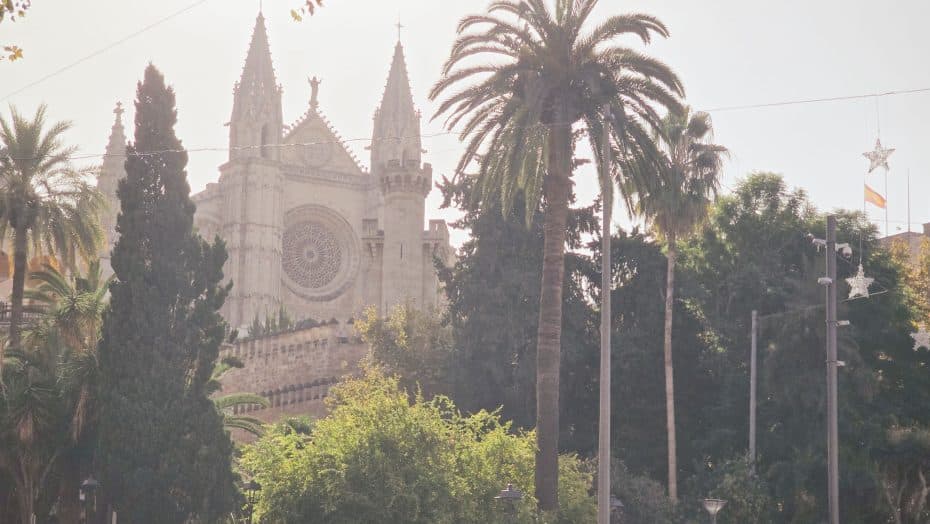
Key landmarks include the Gothic La Seu Cathedral, known for its stunning architecture and sea views, and the Royal Palace of La Almudaina, a former Arab fortress now serving as a museum.
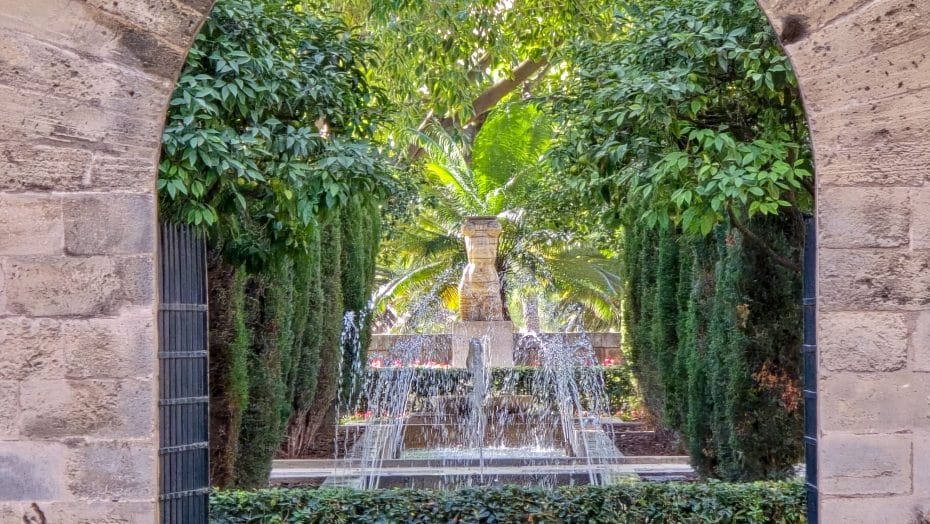
Another highlight is the Plaza Mayor, a lively square surrounded by shops, cafes, and restaurants. Here, you can enjoy shopping and local cuisine. Nearby, you’ll find the Arab Baths, one of the few remaining examples of Muslim architecture on the island, dating back to the 10th century.
Exploring the neighborhood, you’ll find charming streets like Carrer del Apuntadors and Carrer de Jaume II, with boutique shops and traditional eateries. The architecture here showcases Palma’s rich history, with elements from different periods and cultures.
14. Santa Catalina
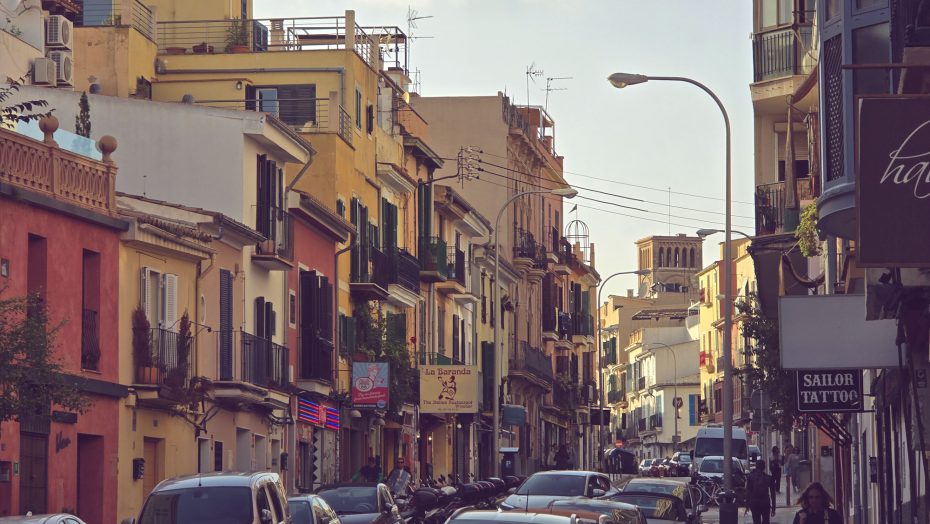
Santa Catalina is one of the trendiest neighborhoods in Palma, known for its lively atmosphere and vibrant nightlife. This area was historically a fishing district, and it still retains much of its original character, with old houses and narrow streets.
The heart of Santa Catalina is the Mercat de Santa Catalina, a bustling market where you can find fresh produce, seafood, and local delicacies. It’s a great place to experience the local food scene and mingle with residents.
Santa Catalina is famous for its many bars, cafes, and restaurants. From traditional Spanish tapas to international cuisine, plenty of dining options exist. The nightlife here is lively, with many spots to enjoy a drink and some music.
Art lovers will appreciate the galleries and boutiques scattered throughout the neighborhood. The vibrant street art and murals add to Santa Catalina’s creative vibe.
15. El Jonquet
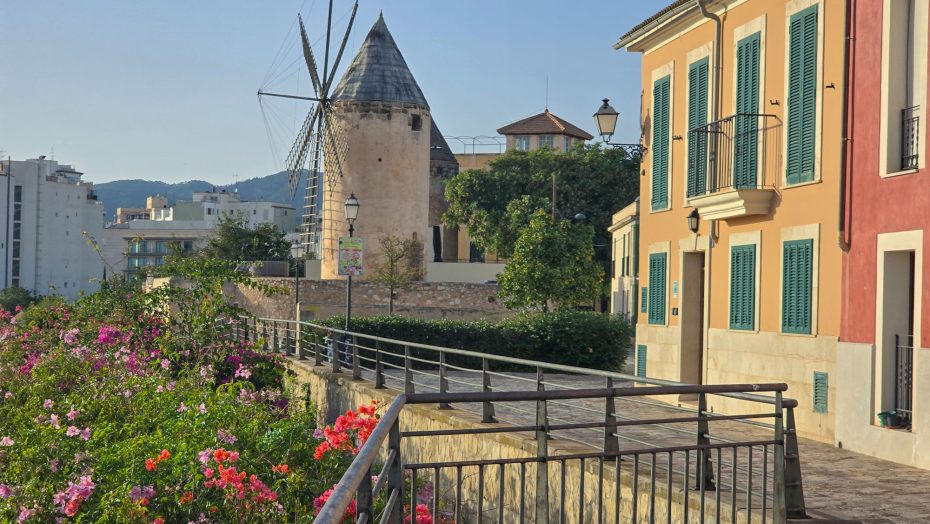
El Jonquet is a quaint and picturesque neighborhood in Palma, known for its traditional windmills and stunning harbor views. This area has a rich history and has retained much of its old-world charm.
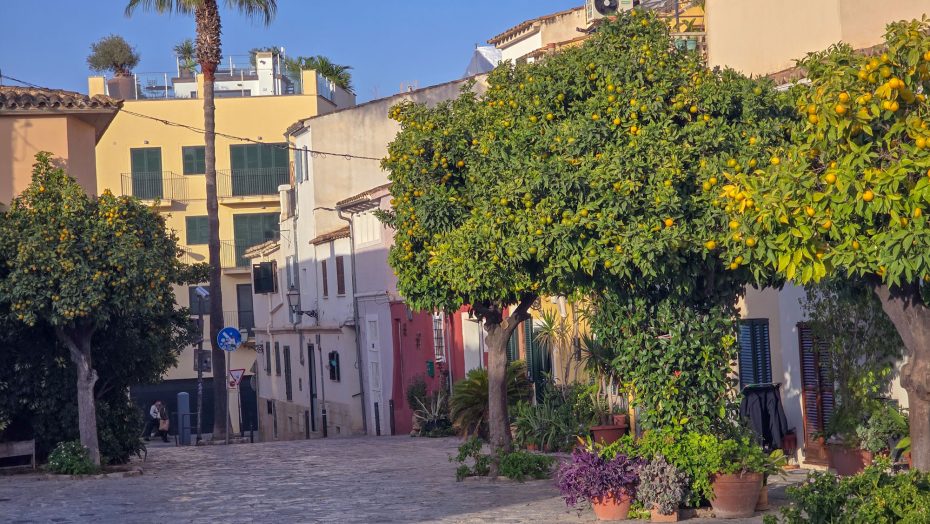
One of the highlights of El Jonquet is its historic windmills, which have become iconic landmarks. Some of these windmills have been restored and offer a glimpse into the neighborhood’s past. The winding streets and old houses add to the area’s unique character.
The neighborhood is also home to a variety of bars and cafes, where you can enjoy a drink while taking in the beautiful views of the harbor. It’s a great place to relax and soak up the local atmosphere.
El Jonquet’s elevated position provides some of the best views of Palma’s waterfront. It’s a perfect spot for a leisurely walk and to capture some memorable photographs of the cityscape.
16. El Terreno
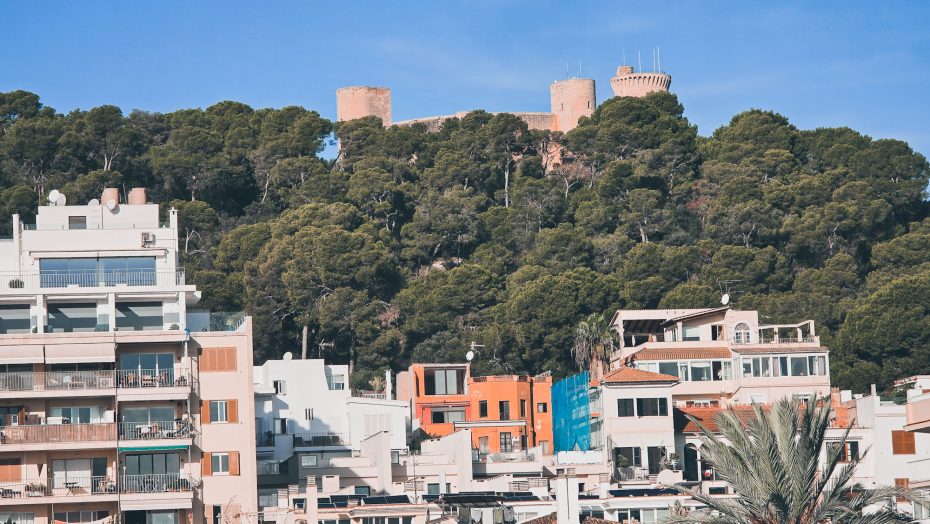
El Terreno is a vibrant neighborhood situated on the slopes of the Bellver Forest, known for its lively atmosphere and nightlife. This area has a mix of historic charm and contemporary appeal.
One of the key attractions in El Terreno is Bellver Castle, a circular Gothic-style castle offering panoramic views of Palma and its harbor. The surrounding forest provides a great opportunity for hiking and enjoying nature.
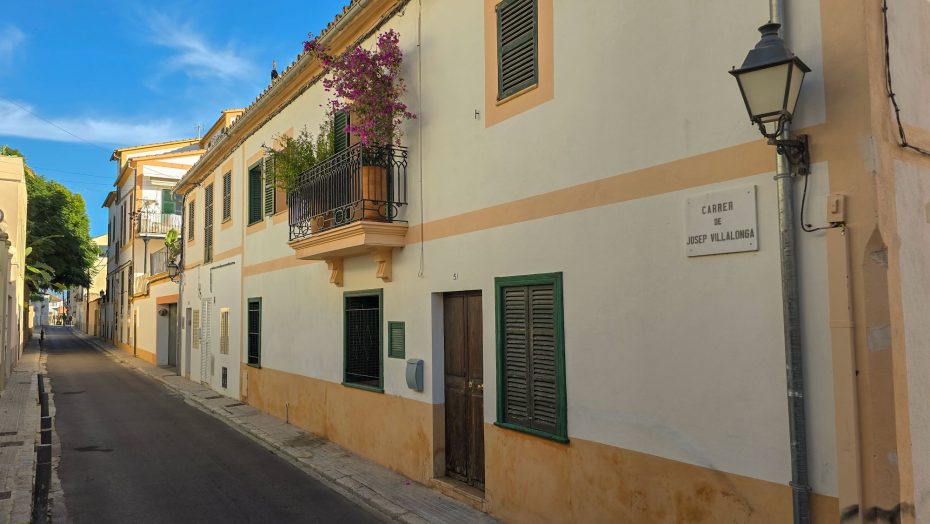
El Terreno is also famous for its nightlife, with many bars, clubs, and live music venues. This makes it a popular spot for locals and visitors looking to enjoy the evening scene. The neighborhood has a diverse culinary scene, with many restaurants offering a range of international cuisines.
The area has undergone significant renovations recently, breathing new life into its streets and buildings. This has made El Terreno an increasingly popular area in Palma de Mallorca.
Unmissable Tours and Guided Visits in Palma de Mallorca
17. Old Town Guided Tours and Experiences
An Old Town Guided Tour in Palma is a great way to learn about the rich history and culture of this area. A knowledgeable guide will lead you through the narrow streets and ancient buildings, sharing stories and historical facts about the city’s past.
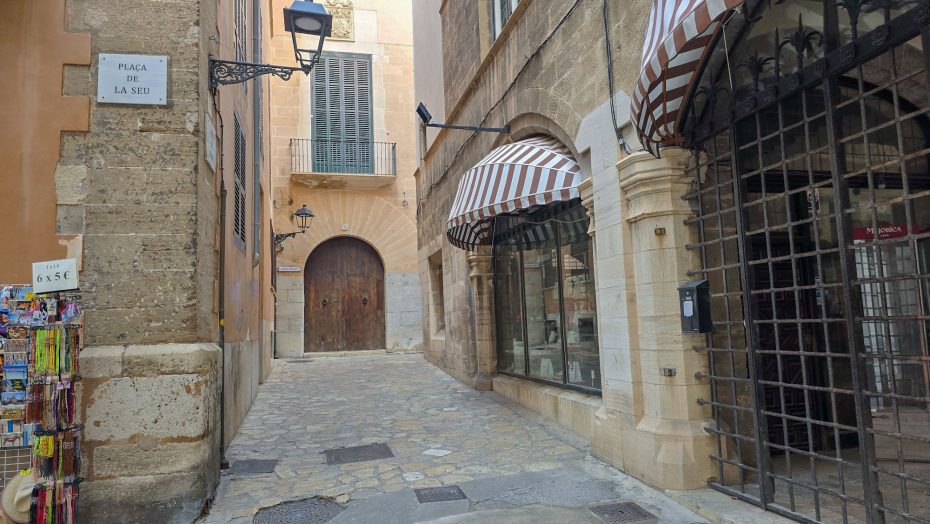
On the tour, you’ll visit key landmarks such as La Seu Cathedral, known for its Gothic architecture and impressive rose window, and the Royal Palace of La Almudaina, a former Arab fortress now serving as a museum. Your guide will explain the significance of these sites and their role in Palma’s history.
You’ll also explore hidden gems like the Arab Baths, one of the few remaining examples of Muslim architecture on the island, and Plaza Mayor, a lively square surrounded by shops, cafes, and restaurants. The guided tour typically lasts 2-3 hours and provides a thorough overview of the area’s history and architecture. It’s a great introduction to Palma’s Old Town.
Another option is the Palma de Mallorca Hop-On Hop-Off Bus Tour, a convenient way to see all the major sights of the city at your own pace. The double-decker buses provide panoramic views, and you can hop on and off at any of the designated stops. Key stops include La Seu Cathedral, Bellver Castle, and the historic port area.
For a culinary adventure, consider the Palma de Mallorca: Gourmet Tapas and Wine Tour. This tour takes you to some of the best local spots to enjoy traditional tapas and fine Mallorcan wines. Along the way, you’ll learn about the region’s culinary traditions and sample a variety of delicious dishes.
18. Gènova Caves
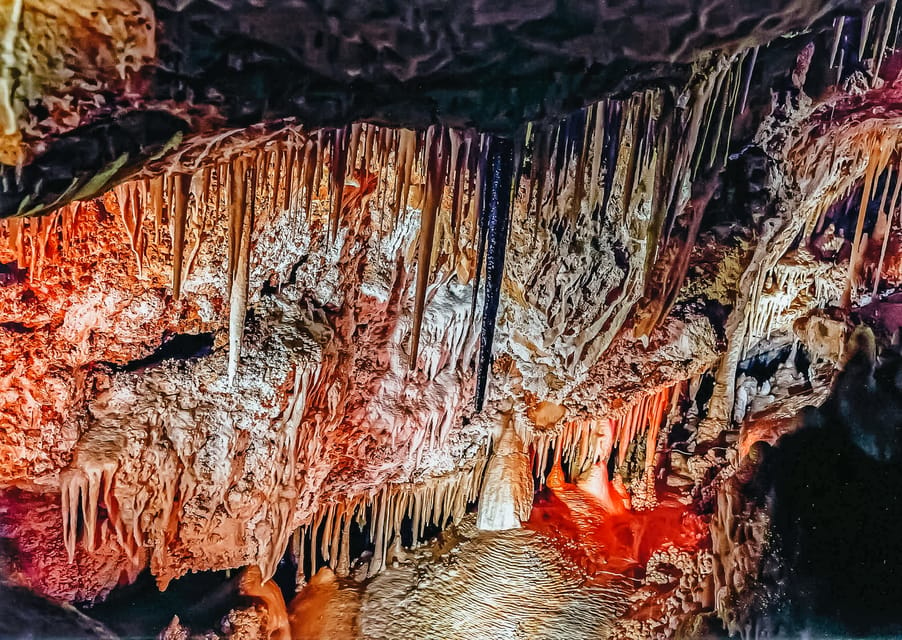
A tour of the Coves de Gènova offers an intimate look at the natural wonders beneath Palma. Discovered in 1906, these caves are located just 6 kilometers from the city center. The guided tour takes you 36 meters underground to explore the impressive stalactites and stalagmites that have formed over thousands of years.
The tour lasts about 45 minutes and includes a detailed explanation of the cave’s history and geology. You will walk through various chambers, each with unique formations and crystal-clear pools. The caves are well-lit, and the paths are easy to navigate, making it accessible for most visitors.
After exploring the caves, you can visit the nearby restaurant for traditional Mallorcan cuisine. The restaurant offers both indoor and outdoor seating, perfect for unwinding after the tour. Another option is combining the cave visit with a city tour, including transport.
19. Boat Trips around Palma Bay
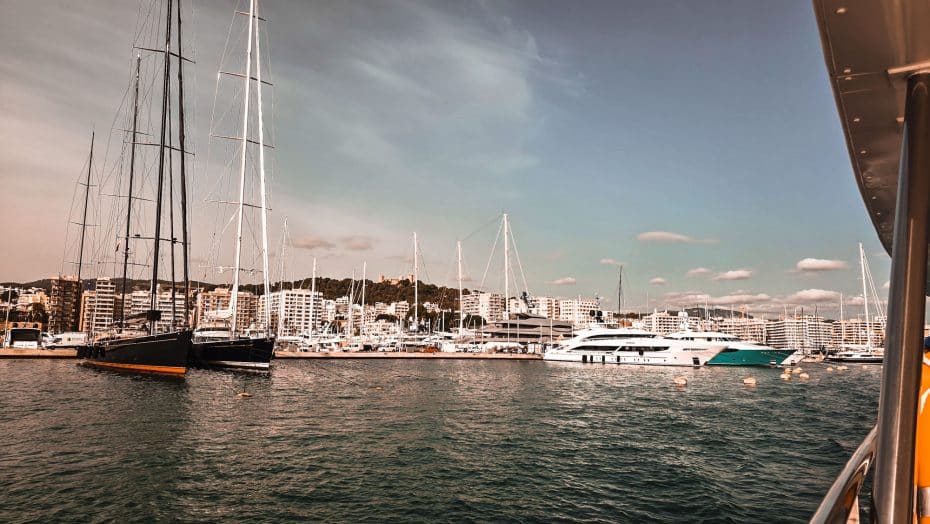
Exploring Palma Bay by boat is a wonderful way to experience the stunning coastline and crystal-clear waters. There are several exciting boat tours to choose from:
A Palma de Mallorca Sightseeing Speedboat Tour offers an exhilarating way to see the bay. This tour takes you on a thrilling ride, giving you a unique perspective of Palma’s coastline and landmarks. It’s perfect for those seeking an adrenaline rush.
For a more relaxed experience, the Catamaran Cruise with Lunch & Swim is ideal. This half-day tour includes a delicious lunch on board and stops for swimming in the beautiful waters of Palma Bay. It’s a great way to enjoy the sun, sea, and a leisurely cruise.
Another fantastic option is the Morning Dolphin Watching Boat Tour. This three-hour tour departs early in the morning and gives you the chance to see dolphins in their natural habitat. It’s a magical experience, perfect for nature lovers and families.
20. Tren de Sóller
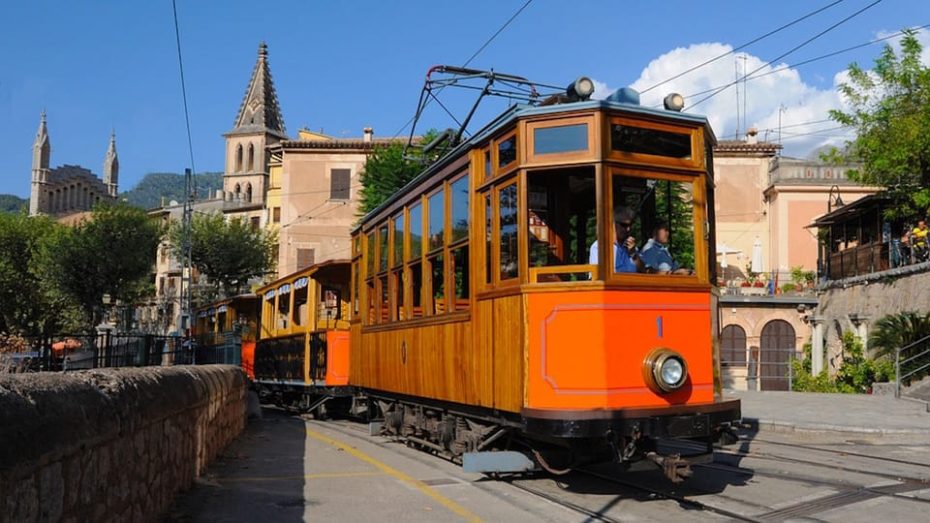
Riding the Tren de Sóller is like stepping back in time. As you board the vintage wooden carriages, you’re transported to the early 20th century, with polished brass fittings and the gentle rocking of the train. The journey starts in Palma, moving from the bustling cityscape into the serene countryside.
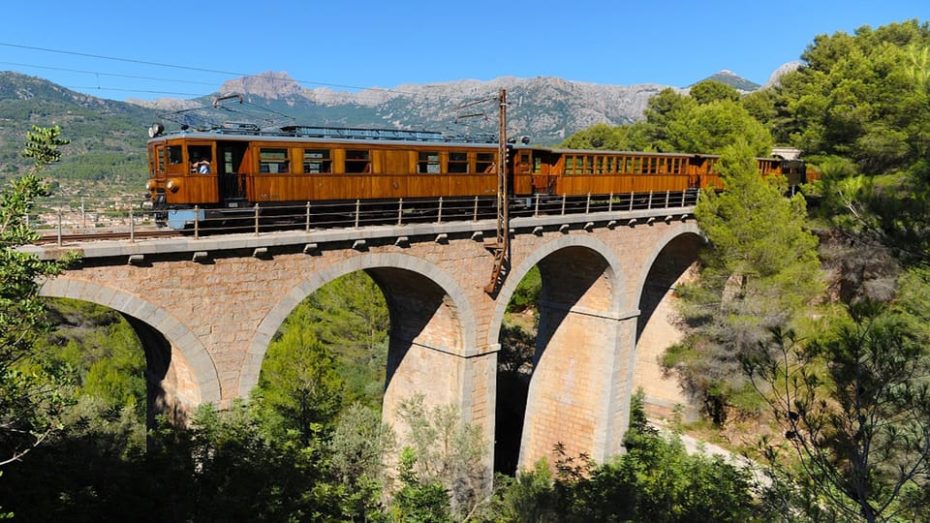
The 27-kilometer (16.8-mile) route offers stunning views of the Serra de Tramuntana mountains, olive and citrus groves, and the Mediterranean Sea. One of the highlights is the descent into the Sóller Valley, where the train slows down for sweeping views of the valley and the sea. The final stretch takes you through the valley’s heart, with Sóller’s stone houses and narrow streets coming into view.
Disembarking in Sóller, you can explore the town’s vibrant market square, historic church, and inviting cafes and shops. The train ride is more than just transportation—it’s an imperial experience connecting you to Mallorca’s history and natural beauty.
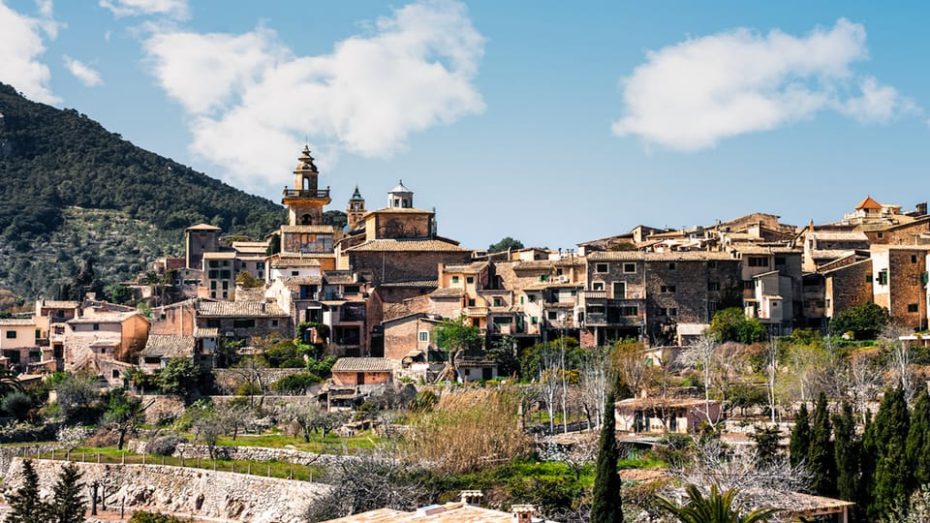
The Tren de Sóller operates daily, with several departures from Palma and Sóller. It’s advisable to check the current schedule and ticket prices online. Tickets can be purchased online or at the station, and it’s recommended to arrive early, especially during peak tourist season. The journey takes approximately one hour, and the train station in Palma is conveniently located on Plaza de España.
21. Hammam Al Ándalus
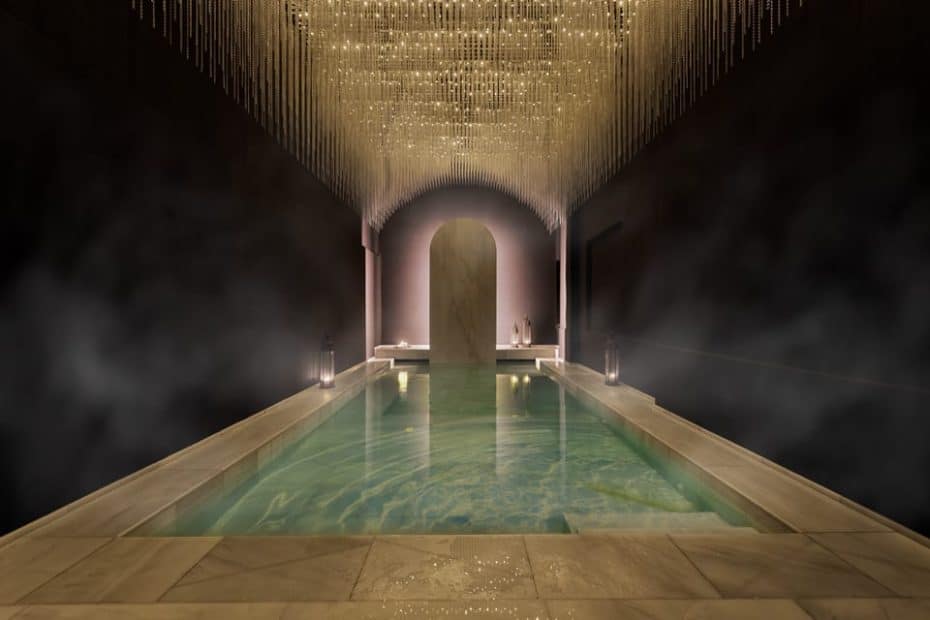
The Hammam Al Ándalus in Palma de Mallorca offers a spa experience inspired by traditional Arab baths. The spa features steam rooms, hot and cold baths, and massages using natural ingredients like olive oil. The serene environment, combined with aromatic scents and soothing sounds, creates a perfect setting for relaxation and rejuvenation. It’s an ideal place to unwind and indulge in a pampering session.
Located in a beautifully restored historic building at Calle Costa I Llobera 20, Palma de Mallorca, 07005, it is easily accessible and offers a tranquil atmosphere for guests to enjoy.


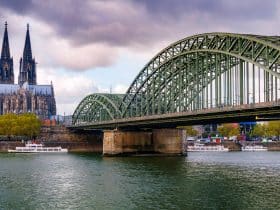
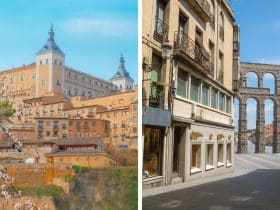

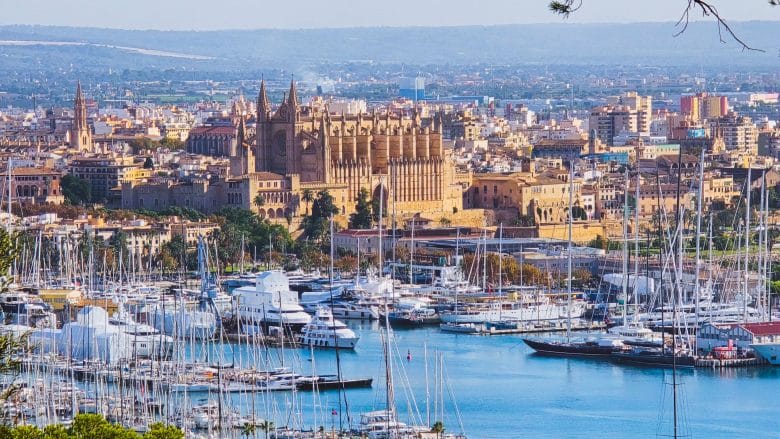
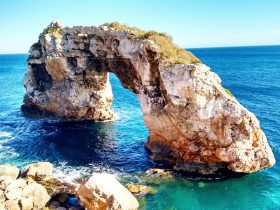
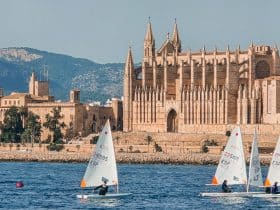
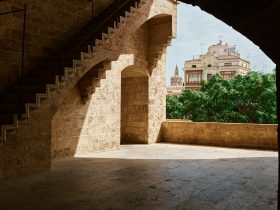
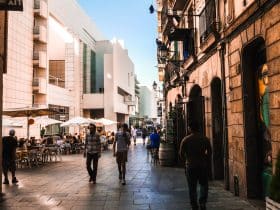
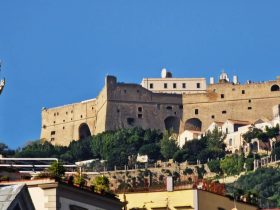
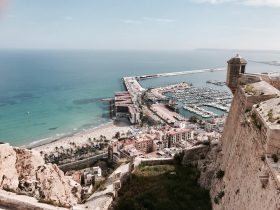
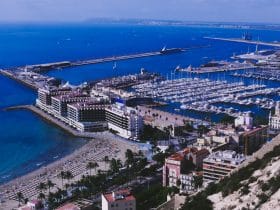
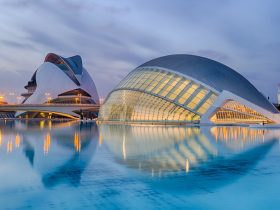
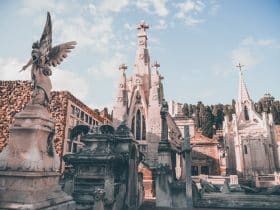
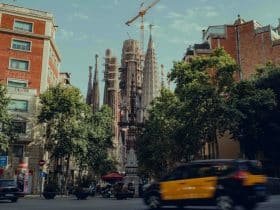
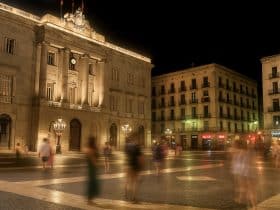
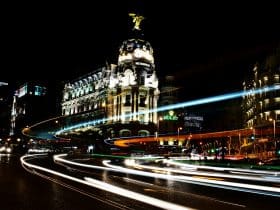
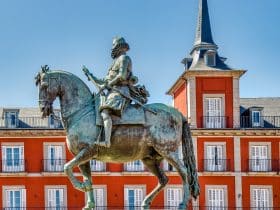
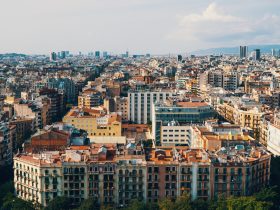
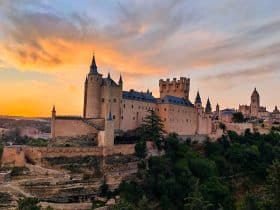
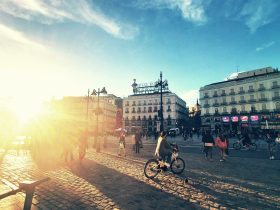

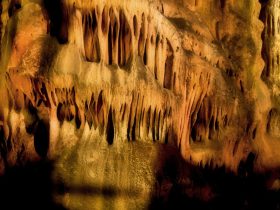
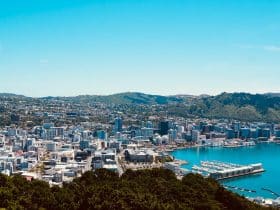
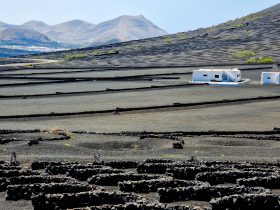
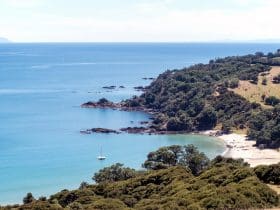
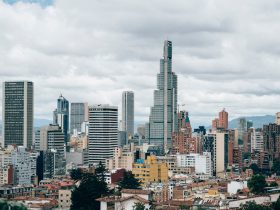
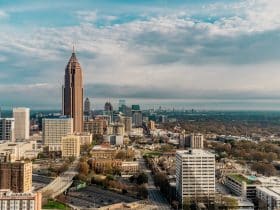
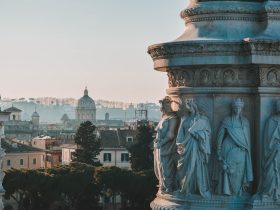
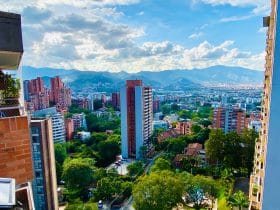
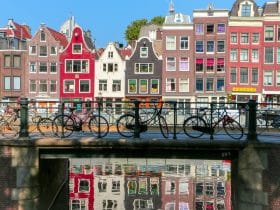
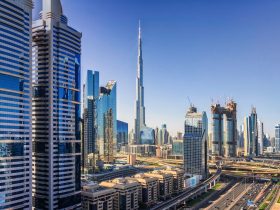
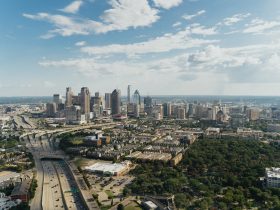

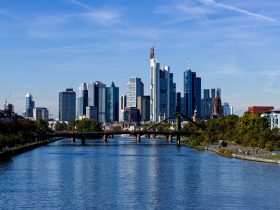
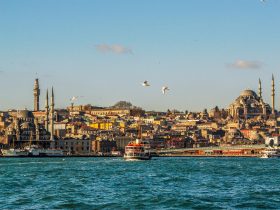

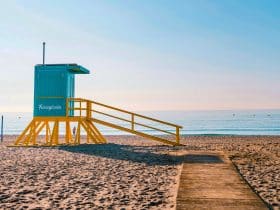
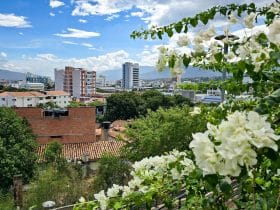
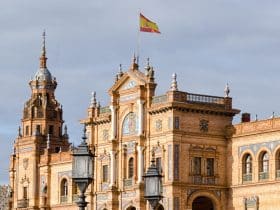
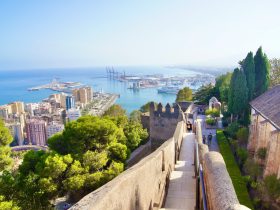
Leave a Reply
View Comments